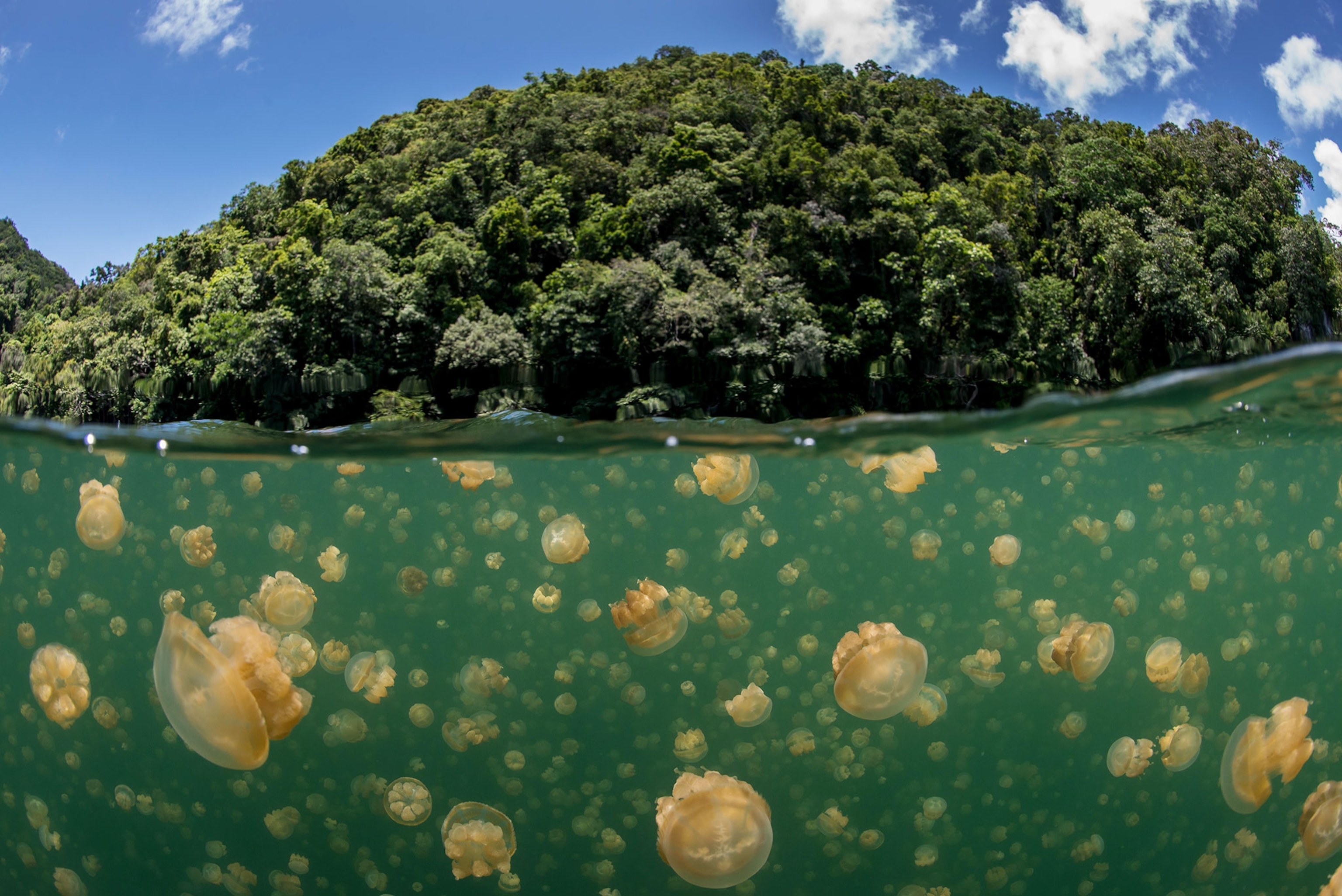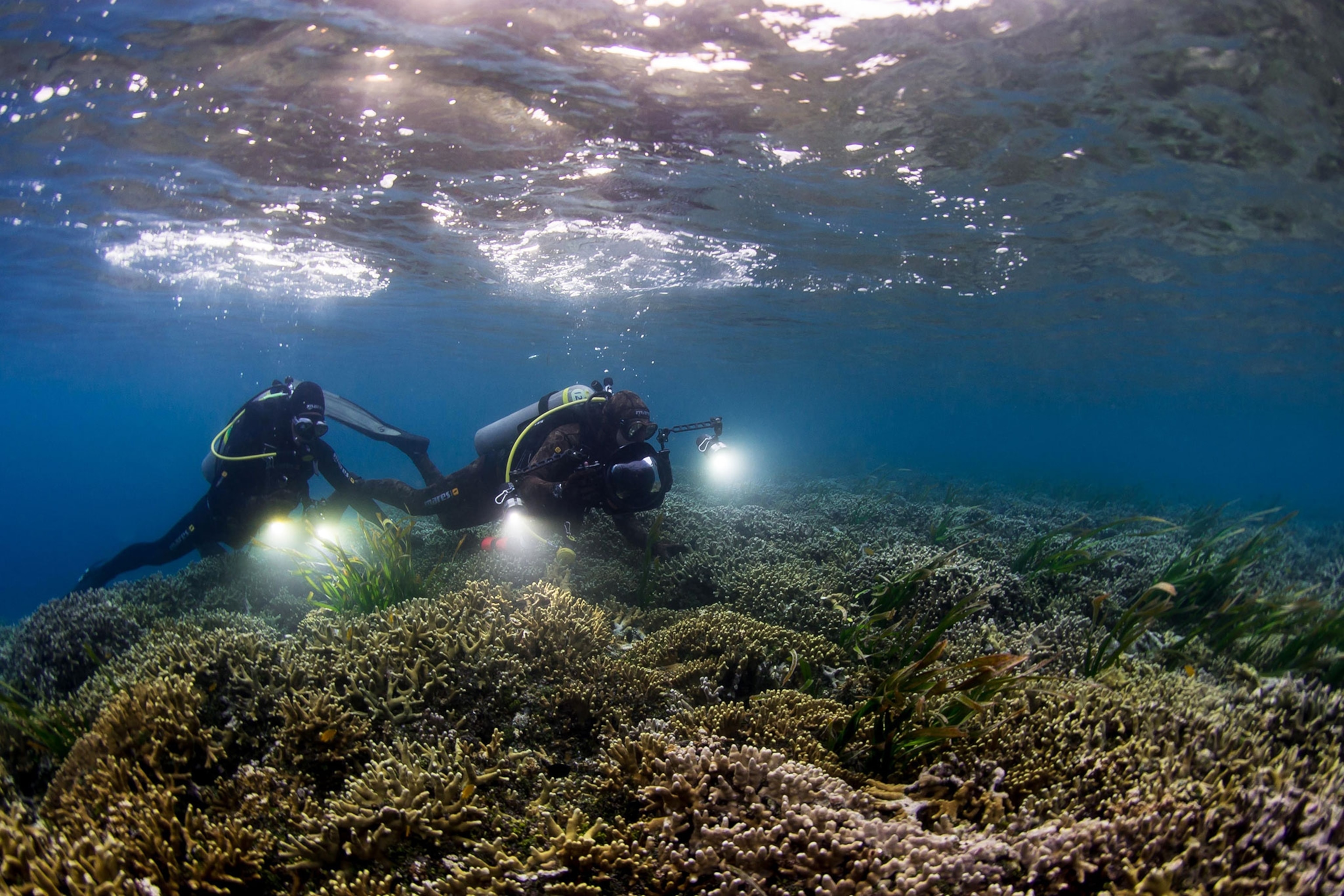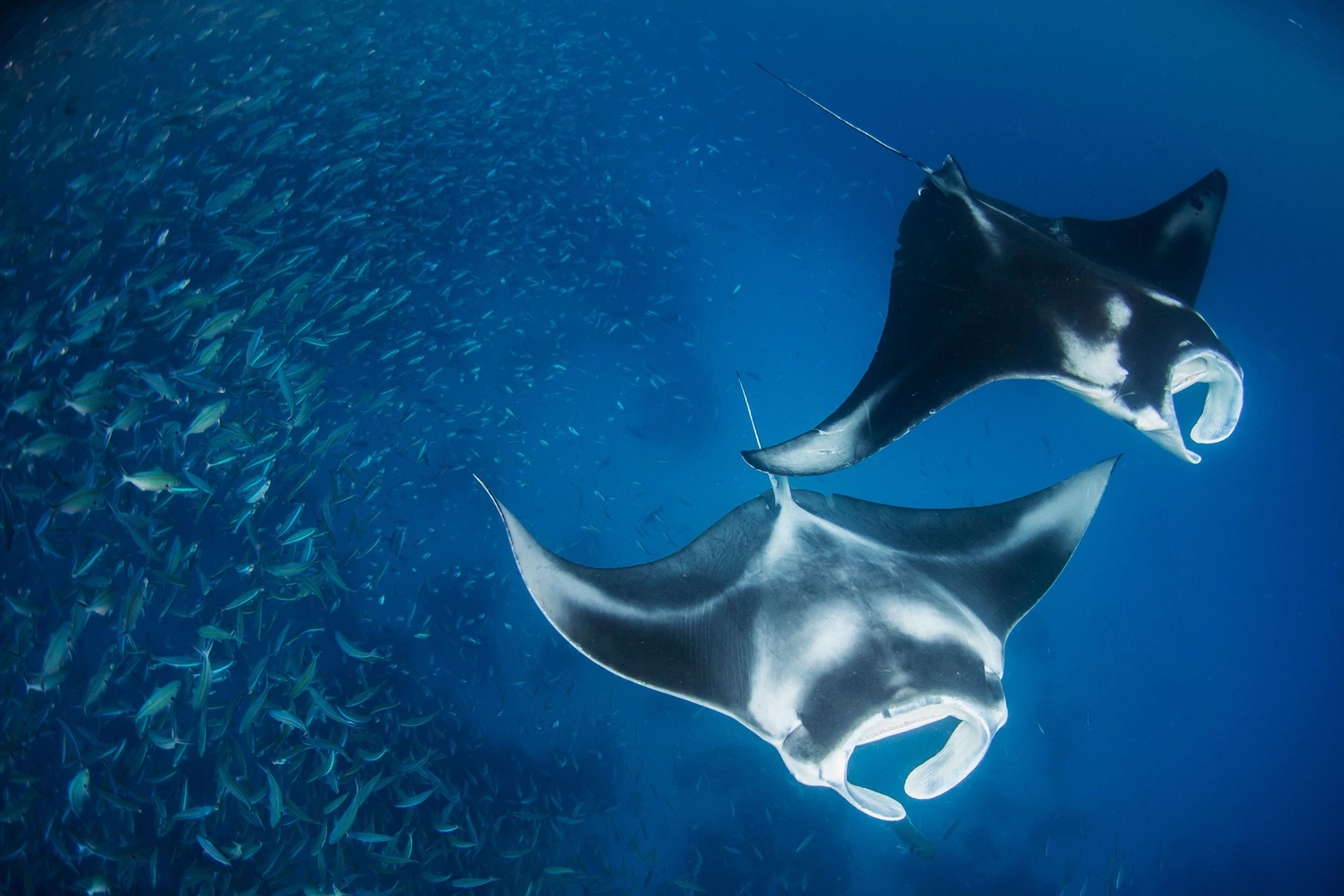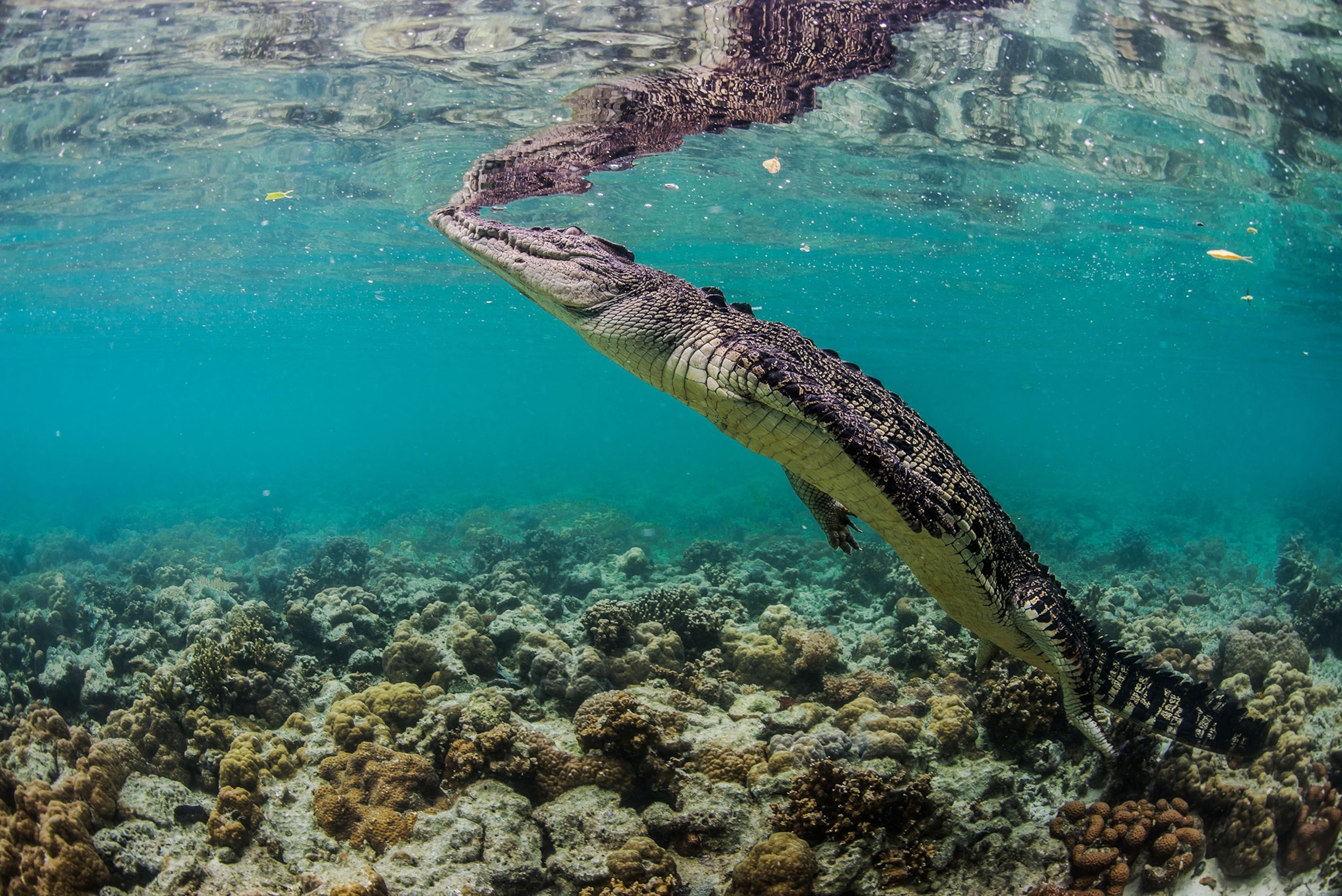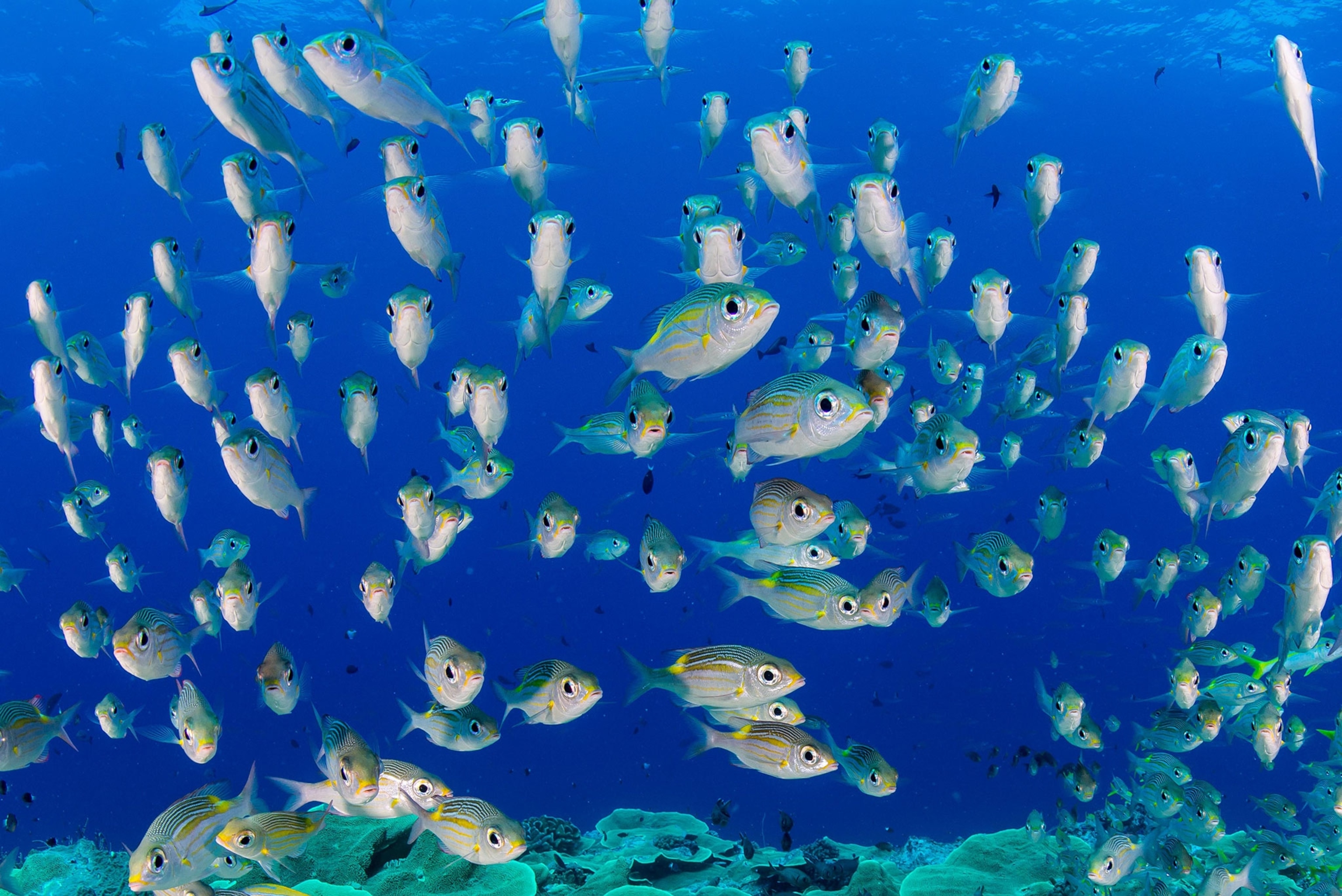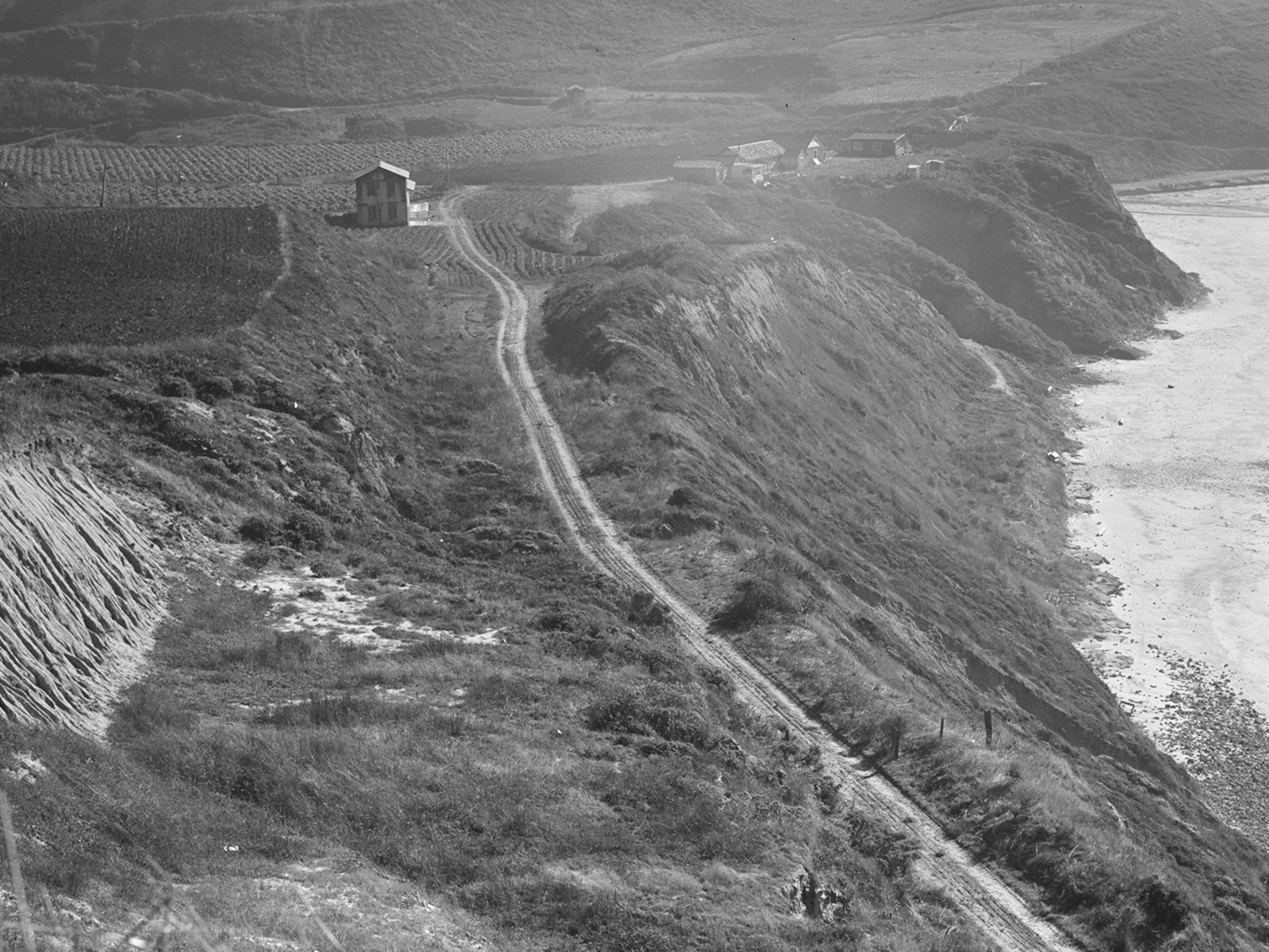Island Nation Burns Boats to Deter Illegal Fishing
The president of Palau decries those who are "raping our marine environment.”
In a fiery crackdown on illegal fishing, officials from the Pacific island nation of Palau burned a cluster of Vietnamese fishing boats off their coast on Thursday, sending black smoke and flames over turquoise water.
Palau law enforcement captured the wooden vessels in recent weeks. The ships' captains remain incarcerated in Palau while the 77 crew members are being sent home on two remaining fishing boats, with enough food and fuel to make it back to Vietnam.
“We hope to send a very clear message to poachers, who are raping our marine environment,” Tommy E. Remengesau, Jr., the president of Palau, told National Geographic. “We will not tolerate any more unsustainable acts. Palau guarantees, you will return with nothing.”
The fishermen were spotted from the shore harvesting tube-shaped invertebrates known as sea cucumbers by scooping them up in buckets. Palau authorities found over eight metric tons of sea cucumbers and reef fish on board, according to the president’s office.
The fishermen did not have permission to operate in the country’s waters. Their vessels join 15 other boats from Vietnam that have been caught by Palau since 2014, with a haul of over 25 metric tons of fish destined for the black market in Asia.
"We are facing a growing, dire threat from illegal fishing in our waters," says Remengesau, who hopes the burning will deter others who are "stealing our fishing resources, the lifeblood of our country" and who are sometimes also involved in human trafficking and drug smuggling.
Remengesau has become increasingly frustrated by poachers, as alleged perpetrators are deported, only to return later, or to have others take their place. Enforcing its fishing laws is a challenge for the small country, which has no military and only one law enforcement vessel. The boats were burned about 25 miles (40 kilometers) offshore, in order to prevent debris from damaging reefs.
Protecting its Waters?
Seeking a longer-term solution, in 2014, Remengesau declared his intent to create a massive marine protected area in Palau's territorial waters, which at 231,000 square miles (600,000 square kilometers) are nearly as large as France.
Under Remengesau’s plan, the Palau National Marine Sanctuary would put 80 percent of the country’s waters off limits to all commercial fishing and extractive activities, from mining to oil exploration. Twenty percent of the reserve would be designated for fishing by Palau's people, with the catch to be consumed on the islands. The proposal is being debated by the country's legislators. (Learn more about marine protected areas.)
The plan builds on the local custom of “bul,” under which Palau’s chiefs ordered the temporary closing of fishing on reefs to allow the fish to recover.
National Geographic Explorer-in-residence Enric Sala led a Pristine Seas expedition to document the rich biodiversity in the country’s waters in November 2014. “It’s a very special place," he says, "one of the most beautiful and untouched places I’ve been to.”
See Palau's stunning scenery from the Pristine Seas expedition:
Enforcement Challenge
To help enforce his plan, Remengesau is calling on the international conservation community and other nations for assistance, from the U.S. to Japan, Australia, and New Zealand.
Dennis McGinn, assistant secretary of the U.S. Navy for Energy, Installations, and Environment, told Remengesau during a panel discussion in Washington on Thursday that his agency is committed to helping Palau police its waters. Last year, the Navy conducted tests in the country’s territory to catch and deter poachers with a combination of ships, aircraft, and satellite technology.
“Mr. president, I assure you we will be back,” said McGinn, who indicated that the next step is securing funding and working on a strategic plan. (Learn more about the U.S.’s efforts to fight illegal fishing.)



